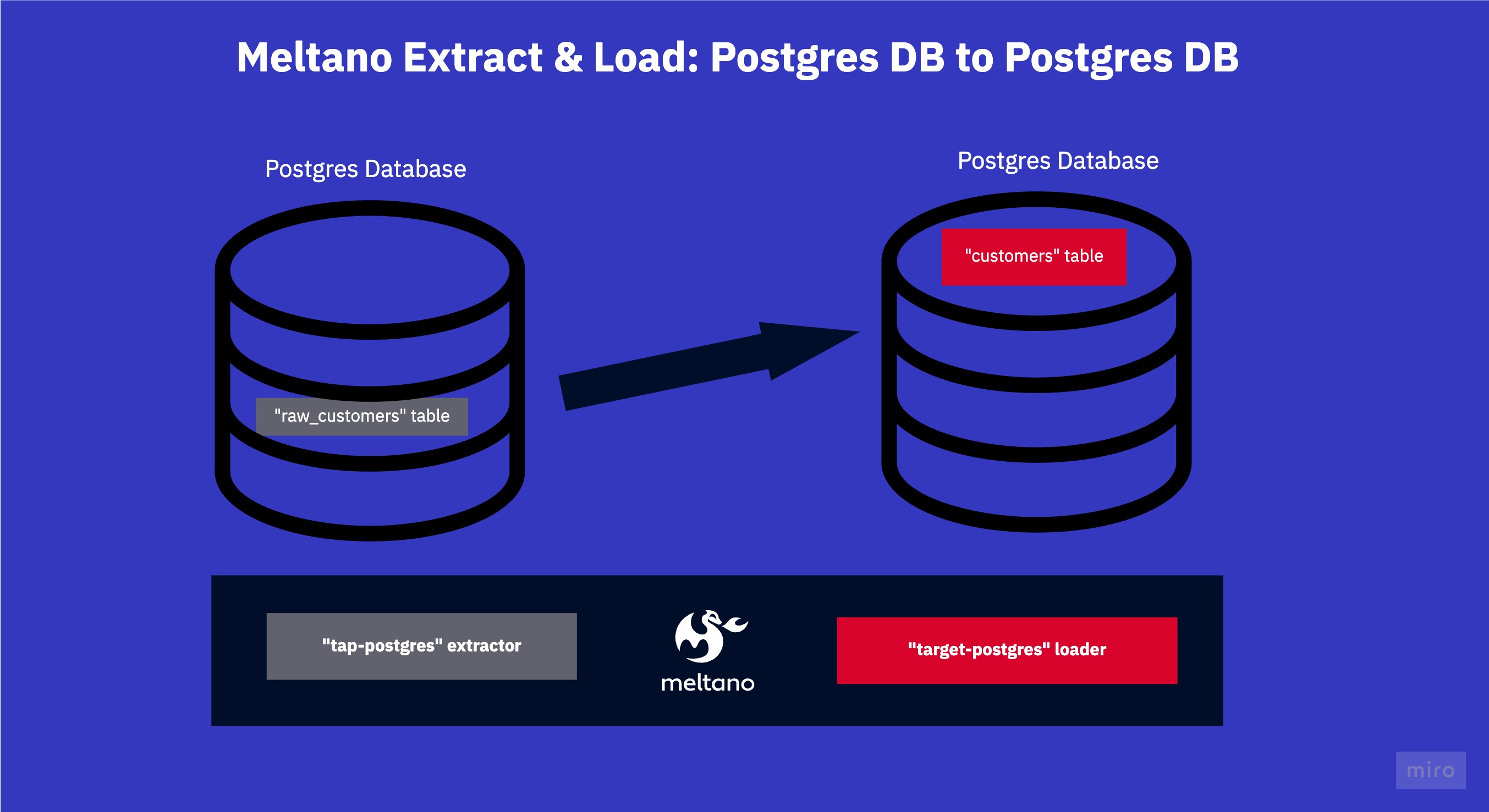This project extends the jaffle shop sandbox project created by DbtLabs for the data built tool dbt.
This meltano project sources one table from one postgres database and dumps it into another postgres database.

What this repo is:
A self-contained sandbox meltano project. Useful for testing out scripts, yaml configurations and understanding some of the core meltano concepts.
What this repo is not:
This repo is not a tutorial or an extensive walk-through. It contains some bad practices. To make it self-contained, it contains a AWS S3 mock, as well as a dockerized Postgres database.
We're focusing on simplicity here!
This repo contains two local postgres databases, one as source with the raw customer data inside, and another one as target.
The meltano project extracts this table using the tap-postgres extractor, and loads them into the PostgreSQL database using
the loader target-postgres.
Using this repository is really easy as it all runs inside docker via batect, a light-weight wrapper around docker.
We batect because it makes it possible for you to run this project without even installing meltano. Batect requires Java & Docker to be installed to run.
The repository has a few configured "batect tasks" which essentially all spin up docker or docker-compose for you and do things inside these containers.
Run ./batect --list-tasks to see the list of commands.
./batect launch_source_target for instance will launch two docker containers both with a local postgres database and seed the source database with initial data.
Batect automatically tears down & cleans up after the task finishes.
-
Launch the mock endpoints in a separate terminal window
./batect launch_source_target. -
Launch meltano with batect via
./batect melt. 2.1. Alternatively you can use your local meltano, installed withpip install meltano. (The mocks will still work.) -
Run
meltano installto install the two plugins, the PostgreSQL loader & extractor as specified in the meltano.yml.
Here is an extract from the meltano.yml:
...
plugins:
extractors:
- name: tap-postgres
variant: transferwise
pip_url: pipelinewise-tap-postgres
config:
host: host.docker.internal
port: 5433
user: admin
password: password
dbname: demo_source
default_replication_method: FULL_TABLE
select:
- public-raw_customers.* # select all three attributes from the public schema inside the raw_customers table.
# use meltano select tap-postgres --list --all to view all selectable attributes
loaders:
- name: target-postgres
variant: transferwise
pip_url: pipelinewise-target-postgres
config:
host: host.docker.internal
port: 5432
user: admin
password: password
dbname: demo_target-
Finally, run
meltano run tap-postgres target-postgresto execute the extraction and loading. -
Check inside the local database afterwards to see that your data has arrived, use the connection data below.
(Note: it really is port 5432, port 5433 host the local source database, but we want to check that the data arrived in the target database!)
...
host: localhost
port: 5432
user: admin
password: password
dbname: demo_target